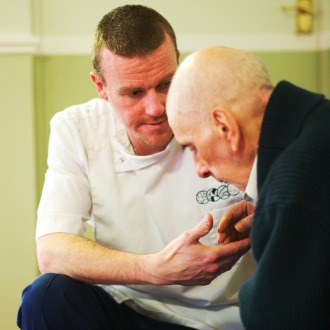Palliative care doctors are not good at predicting when terminally ill patients will die, a study has found.
Researchers had thought that perhaps older or more experienced doctors would be better at predicting length of survival.
But they fund that no subgroup of clinicians was better than others, and that ‘frequently inaccurate’ predictions ranged from an 86-day underestimate to a 93-day overestimate.
The research, published in PLOS ONE, reviewed 42 existing papers including 4,642 records of predictions in total, including any healthcare professional working in a palliative care setting.
The University College London team that carried out the research is now conducting further work to identify whether it is possible to train doctors to make better predictions.
Professor Paddy Stone, professor of palliative and end of life care at the Marie Curie Research Department at UCL, said that ‘delivering the most appropriate care and treatments for those with terminal illnesses is often dependent on doctors making an accurate prognosis’ and that ‘knowing how much time is left can also better equip patients and their carers to make more informed choices about their care’.
He added: ‘This research suggests that there is no simple way to identify which doctors are better at predicting survival. Being more senior or more experienced does not necessarily make one a better prognosticator but we now want to see if we can identify how and why some doctors are better at predicting survival than others and to determine if this is a skill that can be taught.’
Pulse July survey
Take our July 2025 survey to potentially win £1.000 worth of tokens














